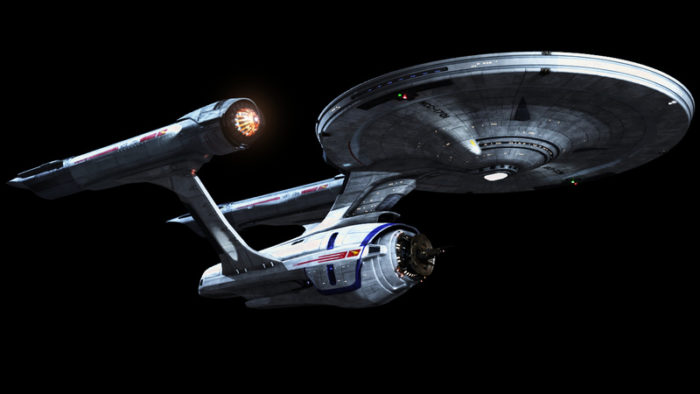
These reviews will contain spoilers.
David’s Log, stardate 07 February, 2019. After making first contact with the Starship Enterprise last week, I was drawn back to her. Although the two entries I saw had different qualities – one had a lot, and the other very little – I saw the series’ potential: a rich cosmos, full of exciting ideas and possibilities. And though the premise of the federation as a benevolent, but highly centralised, power still seems naïve and idealised, I liked the smaller world of the bridge. A world in which characters fight, bond and consider the pros or cons of their actions – weighing up heart vs head. In as much as police procedurals aren’t chiefs as much as the detectives, Star Trek seemed less about power and more about Kirk’s relationship with it. In that respect, it’s potentially a great platform with which to explore how decisions are made under pressure, and ethics more broadly.
It also wasn’t about aliens as much as it was mankind. Being a tribal species, as long as there have been groups people will have asked if the costs of the many outweigh the one. From his cold, utilitarian perspective, Spock evidently thought so. And, despite the best efforts of his frenemy Bones to stop him, gave his life at the end of Wrath of Khan. Interestingly. it was his logical Vulcan approach that gave him the courage to be that unlucky one, allowing other to live long and prosper. In doing so he showed loyalty, compassion and selflessness – the very things we consider to be ideals. This is likely what prompted Kirk to give him his ironic send-off: “Of all the souls I have encountered in my travels, his was the most… Human”. As opposed to a calculated sneer at the dead. In that sense, I was happy to see the futuristic backdrop used as a fancy disguise for something of this world. It explored inner space as much as outer space. And both are pretty big places, with more than two stories to tell. So with another whisky (sure to be a recurring motif in this series), I set out to see the guys again for pizza, drink and to explore more strange new worlds.
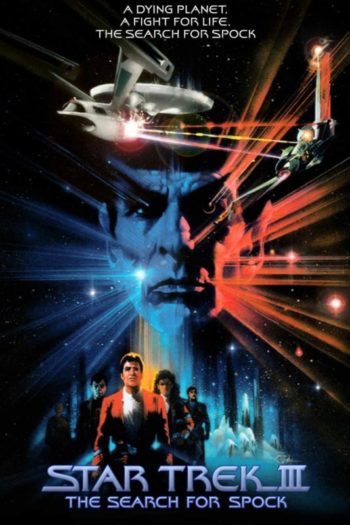
Star Trek III: The Search for Spock (1984)
Picking up where the last let-off, Spock actor Leonard Nimoy spent most of this one out to sit in the director’s seat. Although he’d done TV work, including a movie about Vincent van Gogh, the weight of expectation meant the third Trek presented a very different challenge. Wrath of Khan had been written as a possible end to the franchise, though its success all but guaranteed audiences would continue to follow the Enterprise’s voyages. But how do you solve a problem like the first officer being dead? The team set about writing a space adventure that’d continue the characters first approach of the prior film, but with way more explosions.
These come courtesy of the unstable Genesis planet, created at the end of Wrath of Khan by the Genesis device, and old enemies the Klingons. In an astronomical error, they wrongly take the device to be a weapon of mass destruction (to be fair, humans can’t criticise) and set about finding its secrets. Meanwhile, on the ground the revitalising planet has let a new Spock emerge from his coffin. It’s also causing him to age just fast enough to be played by Nimoy again by the credits. But first, a grieving Kirk and co need to reunite his soul with his body, ‘lest his living spirit’s new host Bones (DeForrest Kelley does an ace impression) die. This subplot involves the film’s standout sequence: when the old crew steals the Enterprise to find their old member’s body. It’s an ensemble sequence, with ‘til now side-lined Sulu tossing a man twice his size and Uhura sending another into the closet, reinforcing the crew is very much a crew.
For the first half I was riveted, wondering if the odd-evens rule is just a load of pish. However, I have major problems with the second half. The movie fittingly declines as the Enterprise gets blown to smithereens, taking out a room of Klingons in what’s probably the closest this series will have to a suicide boming. First and foremost, the chief villain Kruge is dull, with neither the personality nor motivation or Khan. He’s a step above V’Ger (to be fair, so am I), thanks in part to being played by the ever-reliable Christopher Lloyd. Though annoyingly he’s similarly nondescript. There’s simply too little personal connection between himself and Kirk, making him feel more of a ‘that’ll do’ plot device than a meaningful antagonist. Consequently, their scrappy fight scene makes for a lowlight, with neither the pace nor emotional intensity needed to make it work. It’s further hurt by the unconvincing soundstages making up Genesis, that detract from the majesty of space, and the sluggish pace of the midsection that fails to create much suspense.
Another real problem is the lengths Search For Spock goes to undermine its predecessor. Obviously, they’d find him again – and that’s fine. But nothing of much impact happens first – there’s no gamechanger. It isn’t quite a reset, given the characters will have a court-martialling pending – which none seem too worried about. But we’re still way closer to the status quo than at the start. By the end, Spock’s back on the bridge, the Genesis planet’s gone, Kirk’s no longer miserable and his barely important son has suffered a barely important death. The last of these was perhaps most frustrating plot point, with David getting shot having all the impact of hearing about someone you don’t know getting a paper-cut. In a dream. It’s especially disappointing given the grieving process is core to opening act when Kirk, with nothing to live for, feels as decommissioned as his ship. Still, when it lands, it does so perfectly. As much as our DNA, we are the sum of our experiences. Hence it’s hard not to be moved when Spock’s memories of friendship and past adventures flood back to him. And, to be fair, I’m looking forward to seeing him make some more.
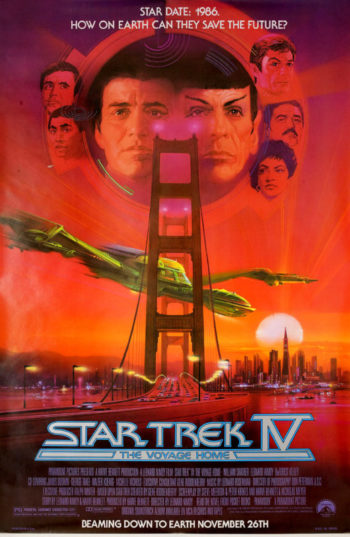
Star Trek IV: The Voyage Home (1986)
Set phasers to fun – it’s the one with the whales! Fresh from escaping the Genesis planet, the crew are headed back to Earth with a stolen Klingon ship to face the authorities for nabbing then destroying the Enterprise. However, the Federation has bigger mammals to fry as a great big cylinder has kicked up a storm and disabled the power grid. It’s also hovering over the sea, emitting the same mysterious signal. After hearing a warning message about it, the ever-wise Spock deduces that the signal matches the song of the humpback whale. But how the heck can they respond to it? Humpback whales have been extinct for centuries. The only option seems to be going to the past and finding one (or two) of these mythical sea-beasts.
Such a demented story shouldn’t work, but it really does here. It’s maybe in no small part down to the change of tone – returning director Nimoy shows he’s versatile. Whilst Search for Spock had bits of comedy laced throughout, The Voyage Home amplifies it with some classic mammals out of water hijinks. It’s well judged, with the team trying to get to grips with the 1980s America resulting in humorous slapstick and even social comment – with Russian Checkov hunting nuclear weapons. The crew as outsiders narrative is also a good way to keep them on the back foot throughout. This means though there’s no bad guy for much of the movie’s running time, and far less focus on space battles, it’s never less than entertaining. It’s also refreshing to spend time with these characters where they’re under a bit less immediate pressure than earlier outings. All get their time to shine, with some good gags and misunderstandings. Bones stunned by the primitive medical techniques is a joy to behold. However, the highlight has to be Kirk.
After three films of middle-aged malaise, The Voyage Home is the first time I’d seen the James Kirk that I had heard so much. This is the version children want to be and adults hold on to – the one that’s become a true science fiction icon. The one that’s witty, charming and, most of all, charismatic. All these qualities are projected by Shatner, who seems to be having the time of his life. He even gets the chance to live up to his Lothario reputation, with a love interest. This is despite little things like him seeming utterly mad and having a friend who breaks into the whale enclosure then calls him “Admiral”. As he saves both the whales and the world (in a cheesy, but well-meaning parallel) it’s hard not to smile. When he’s demoted to his old status of captain afterward, I assume to the disappointment of very few viewers, it feels like an assurance his personal crisis is over. And with the reveal of their new and improved Enterprise (the true home of the title), Star Trek is going back to basics. For many fans, it’ll have been good to see him again. For me, it was a pleasure to finally meet him.
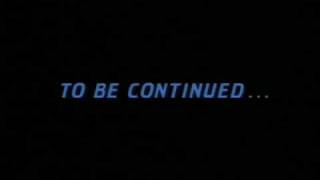
You can read the first of this series here, including thoughts on The Motion Picture and Wrath of Khan.





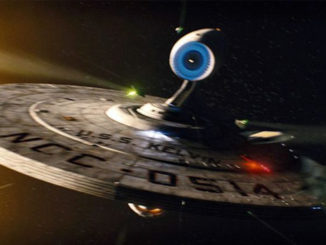
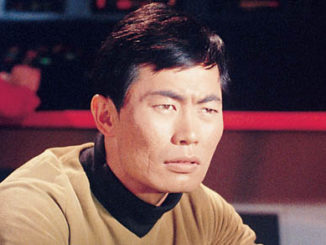
Be the first to comment